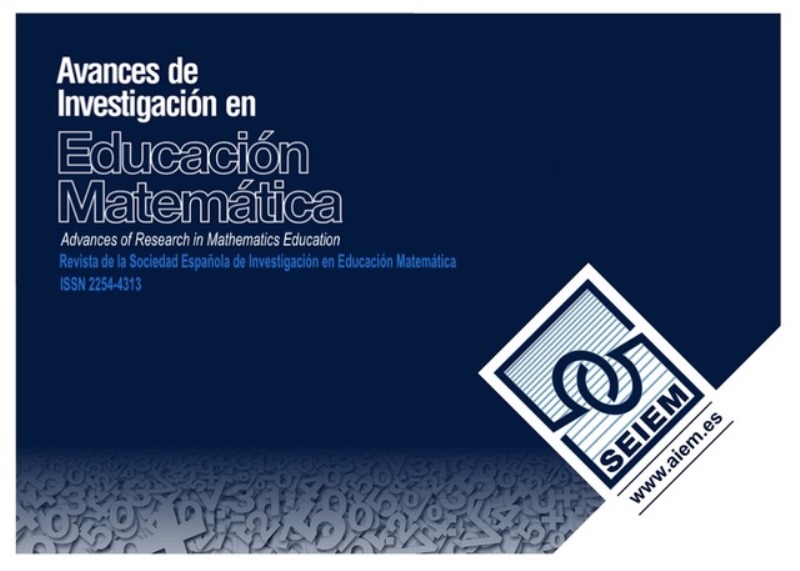A comparative study about compound proportionality in Spanish Secondary textbooks under LOGSE-LOE-LOMCE
DOI:
https://doi.org/10.35763/aiem.v1i8.119Keywords:
Compound proportionality, textbooks, secondary education, methods of resolution, classification of problemsAbstract
In this work, we perform a comparative study about the treatment of compound proportionality in 6 series of Secondary Spanish textbooks (age 12-16). These series belong to two different publishing houses and were published under the last three educative periods implemented in Spain. This is an a priori textual analysis carried out under the paradigm of content analysis and structured through different categories. Among other results, we conclude that there is great variability on the treatment given to compound proportionality although the types of problems and their contexts are very homogeneous. In addition, we detect deficiencies, among other aspects, in the characterizations and justifications used in the texts.
Downloads
Downloads
Published
How to Cite
Issue
Section
License
The articles published in this journal are under a license Creative Commons: By 4.0 España from number 21 (2022).
Authors who publish with this journal agree to the following terms:
- Authors retain copyright and keep the acknowledgement of authorship.
- The texts published in this journal are – unless indicated otherwise – covered by the Creative Commons Attribution 4.0 international licence. You may copy, distribute, transmit and adapt the work, provided you attribute it (authorship, journal name, publisher) in the manner specified by the author(s) or licensor(s). The full text of the licence can be consulted here: http://creativecommons.org/licenses/by-nc/4.0.
- Authors are able to enter into separate, additional contractual arrangements for the non-exclusive distribution of the journal's published version of the work (e.g., post it to an institutional repository or publish it in a book), with an acknowledgement of its initial publication in this journal.
- Authors are permitted and encouraged to post their work online (e.g., in institutional repositories or on their website) prior to and during the submission process, as it can lead to productive exchanges, as well as earlier and greater citation of published work (See The Effect of Open Access).









